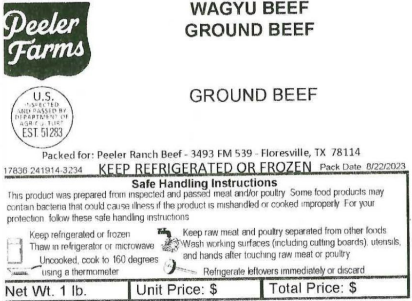The FDA is advising consumers not to eat, and restaurants and food retailers not to sell, and to dispose of cultured mussels from East River Shellfish, Inc. from harvest location PE 4-C, harvested on 8/14/2023, and shipped on 8/15/2023 to retailers in IL, MA, and NY due to the possible presence of Salmonella and E. coli. On 8/21/2023, the CFIA tested mussel meats and discovered the presence of Salmonella and high levels of generic E. coli. On 8/23/2023, the CFIA informed the FDA of the testing results from the contaminated product. The CFIA food safety investigation into the cause of the problem is ongoing. Restaurants and food retailers in Illinois (IL), Massachusetts (MA), and New York (NY) have recently purchased cultured mussels from East River Shellfish, Inc., based in Glenfinnan, Prince Edward Island, Canada. The FDA is issuing this alert advising consumers not to eat and restaurants and food retailers not to sell cultured mussels from East River Shellfish, Inc. harvested on 8/14/2023 due to contamination from Salmonella and high levels of generic E. coli. The FDA is awaiting further information on the distribution of the mussels and will continue to monitor the investigation and provide assistance to state authorities as needed. @ https://www.fda.gov/food/alerts-advisories-safety-information/fda-advises-restaurantsretailers-not-servesell-and-consumers-not-eat-certain-cultured-mussels-east?utm_medium=email&utm_source=govdelivery




